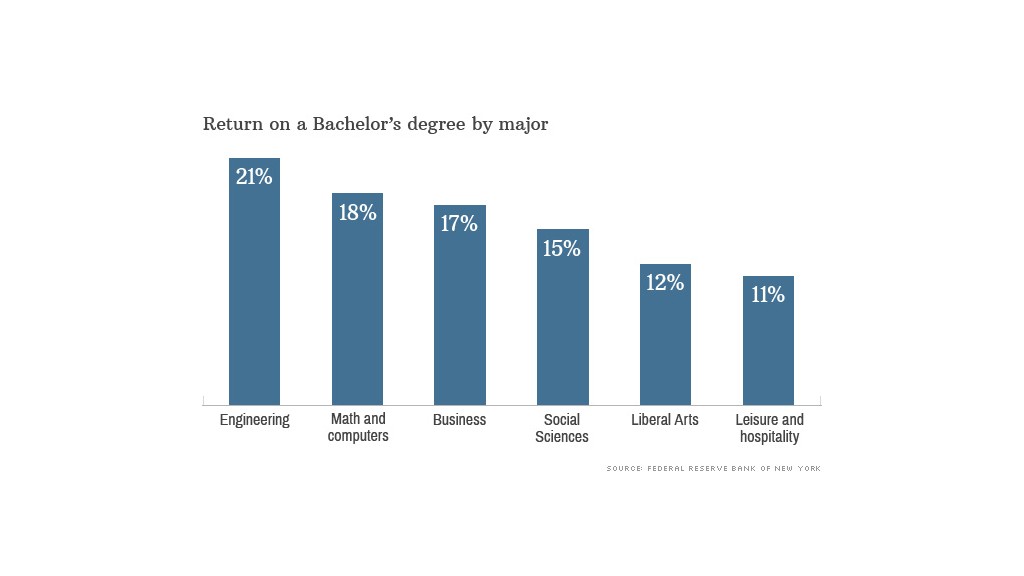
Is going to college still a good investment? For most students, the answer is a resounding yes.
According to a new paper by Federal Reserve Bank of New York economists Jaison Abel and Richard Deitz, the rate of return for a bachelor's degree has been hovering around 14% to 15% since 2000, "easily surpassing the threshold for a sound investment."
How did they calculate that ROI? They factored in two key things: the cost of an undergraduate education and the wages college grads can expect to earn relative to the wages of mere high school grads, up until they retire around age 65.
On both ends, college grads have been hurting recently. Tuition has been rising rapidly, and at the same time, wages have been falling. So how can the return on investment barely change?
More from Ozy: From a 6-week course to a 6-figure salary
Here's why. The fate of workers with less than a college education is deteriorating even more rapidly than the fate of their college-educated peers.
Thus, students are forced to choose the lesser of two evils: pay the high price to go to college -- possibly incurring an enormous amount of student loan debt -- or earn far less over a lifetime and face a greater likelihood of being unemployed for long periods.
In that tradeoff, college still wins.
"Despite the recent struggles of college graduates, investing in a college degree may be more important than ever before because those who fail to do so are falling further and further behind," the researchers say.
Related: Colleges with the best bang for your buck
Wages falling, but lower for those without degree: Between 2001 and 2013, average wages declined about 10% for workers with bachelor's degrees, and 8% for workers with just a high school diploma.
Even after those declines though, workers with a bachelor's degree still earn about 75% more than high school grads, and over a lifetime, that payoff is huge. Compared to high school grads, workers with bachelor's degrees earn about $1 million more, and workers with associate's degrees earn about $325,000 more over a lifetime.
More from Ozy: What a college degree is really worth
Underemployment: What about college grads who get stuck in low-level jobs as baristas, retail sales clerks or waitresses? About a third of college grads spend much of their careers in jobs that do not require a bachelor's degree.
Even for these workers though, the New York Fed researchers find that college is worth the cost. The workers still tend to earn more than high school educated workers and are less likely to become unemployed than their high school educated peers, the study says.
These college majors have the highest returns: For students truly looking to maximize their returns, degrees in engineering, math and computers offer the biggest bang for your buck, whereas degrees in liberal arts, leisure, hospitality and agriculture offer lower returns.

Education degrees offer the lowest returns, at 9% a year. But that partially reflects the fact that teachers often work less than a full year.


